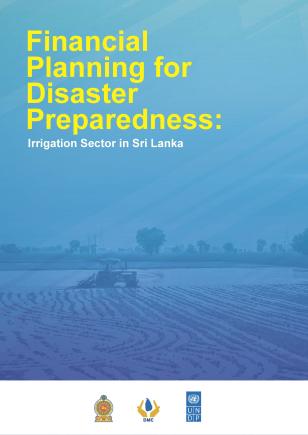Financial Planning for Disaster Preparedness: Irrigation Sector in Sri Lanka

Financial Planning for Disaster Preparedness: Irrigation Sector in Sri Lanka
December 18, 2023
Sri Lanka is prone to disasters, such as storms, cyclones, floods, landslides, and tsunamis. In accordance with the ND-GAIN1 indices, both the Climate Risk Index2 as well as the Inform Risk Index3 , the country faces significant challenges in terms of financing losses and damages. Based on these indexes, Sri Lanka is one of the countries with a high risk to disasters.
Moreover, over the coming decades, Sri Lanka is expected to be affected by a warmer climate resulting from climate change. Therefore, the severity of hazards is expected to be exacerbated due to the climate change. Given the disaster challenges Sri Lanka faces, as well as the costs of damage currently following an upward trend within the country, it is especially important to assess and implement ex-ante risk financing strategies, such as the proposed in this document: specific annual budget allocation for disaster, disaster fund, contingent credit, and parametric sovereign insurance to respond effectively to these challenges from a public finance perspective.
The aim of this report is to raise awareness of the fiscal impact that natural disasters have on Sri Lankan public finance. In this context, the report recommends ex-ante risk financing instruments as a part of disaster risk financing strategy. An ex-ante risk financing strategy, in contrast to ex-post financing, reduces liquidity risks and uncertainties around financing after a disaster and prevents extra charges associated with funding, given that the sovereign risk profile could be negatively impacted. Thus, ex-ante risk financing instruments increases public finance’s resilience against disasters. This can result in a better response to and recovery from disasters and an increased focus on prevention and preparedness. It also enables an increase in the level of control and predictability in the management of public finances.
The core objective of this report is to provide technical inputs for the Government of Sri Lanka ton develop the country’s financial preparedness planning and assess post-disaster budget execution capabilities.

 Locations
Locations